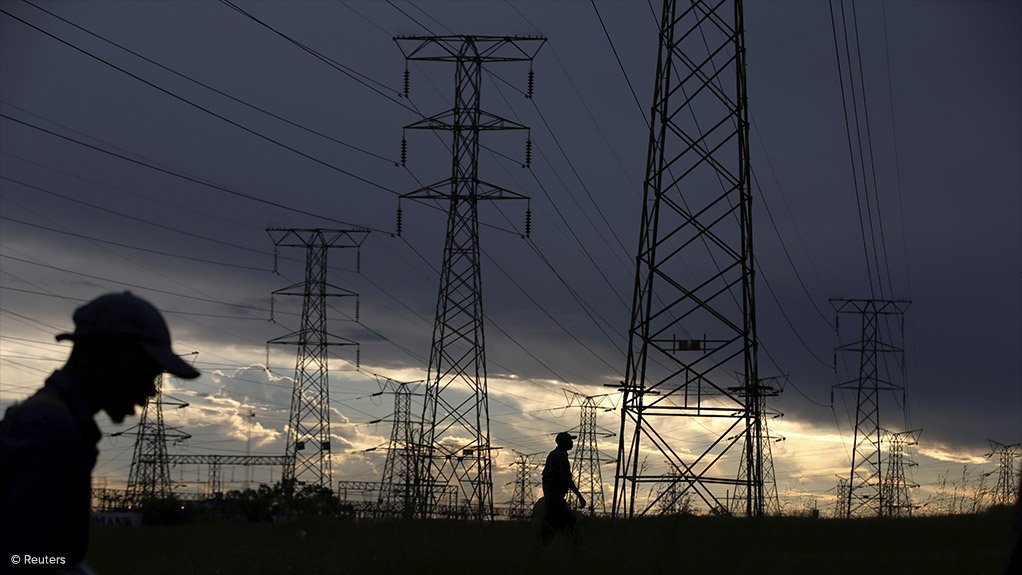/ MEDIA STATEMENT / The content on this page is not written by Polity.org.za, but is supplied by third parties. This content does not constitute news reporting by Polity.org.za.
As part of its week-long oversight to Gauteng, the Portfolio Committee on Electricity and Energy held a meeting that brought together key stakeholders which included Eskom, National Treasury, the Department of Cooperative Governance and Traditional Affairs (COGTA), and the South African Local Government Association (SALGA), on the growing municipal electricity debt crisis, which has escalated to nearly R100 billion.
The aim of the meeting was to find solutions on the pressing challenges affecting municipalities’ ability to meet their financial obligations and sustain electricity. The committee emphasised the seriousness of the situation, noting that the escalating municipal debt affects not only Eskom’s financial stability but also the delivery of essential services to millions of South Africans.
During the discussions over 160 municipalities were classified as financially distressed, with 98 of them operating on unfunded budgets in the 2024/2025 financial year, 7 of them participating in the Municipal Debt Relief Program, and 14 of them have successfully met the conditions required for debt relief and write-offs.
The committee stressed that the municipal electricity debt crisis requires collaboration and decisive action from all levels of government and stakeholders. The committee said the crisis poses a significant risk to service delivery and the livelihoods of millions of South Africans. Members of the committee said the time of pointing fingers is over, the time calls for collaborative solutions and long-term reforms.
Eskom highlighted that the municipal arrears increased from R74 billion in March 2024 to R98.5 billion by February 2025, with significant growth in debt attributable to provinces like Free State and Mpumalanga. Eskom expressed grave concerns about the implications of this trend on its financial sustainability, noting that the gains from the debt relief program aimed at reducing its overall debt from R400 billion to R250 billion could be neutralised within three years if the rising municipal debt trajectory is not curtailed.
Eskom emphasised that as part of solutions to address the electricity debt crisis, funds collected from customers by the municipalities are prioritised to settle bulk electricity accounts before being used for other municipal expenses.
National Treasury underscored its efforts to enforce fiscal discipline through several interventions, including withholding equitable share allocations to defaulting municipalities under Section 216(2) of the Constitution. Treasury reported that equitable share allocations for several municipalities were withheld to compel them to address their financial management failures.
Despite these measures, Treasury acknowledged that entrenched dysfunctionality in many municipalities continues to undermine progress. Treasury also highlighted that only a fraction of the 10 million indigent households identified in the census are benefitting from the Free Basic Electricity grant due to inefficiencies in municipal administration, leaving millions of impoverished South Africans without critical energy support.
COGTA and SALGA shared insights into the structural and operational inefficiencies that have crippled municipalities. These include weak governance, lack of capacity, inadequate enforcement of revenue collection measures, and outdated infrastructure. COGTA noted that the absence of energy master plans and failure to maintain accurate indigent registers have compounded the crisis.
SALGA highlighted that the overly fragmented approach to addressing municipal debt must be replaced with integrated capacity-building programs, including technical assistance for cost-reflective tariffs and improved revenue collection systems.
The committee also heard that smart metring solutions have shown promising results in improving revenue collection, with pilot projects recovering millions of rands in previously uncollected funds. National Treasury announced that an additional R650 million would be allocated in the next financial year to expand smart metering programs to targeted municipalities. These interventions aim to enhance overall efficiency and ensure timely payment of bulk electricity accounts.
The meeting further explored the critical role of legislative reform in tackling these issues. Eskom and other stakeholders called for adjustments to the Electricity Regulation Act to enable more proactive credit control measures. The committee also noted concerns about the affordability of electricity tariffs and the long-standing need to increase the FBE grant threshold to meet the growing needs of indigent households.
Members of the committee pointed out that sustainability solutions must balance immediate interventions with long-term reforms. Furthermore, the committee stressed the need for an all-of-government approach to address the systemic nature of the challenges faced. The committee recommended the establishment of a dedicated Municipal Recovery Task Team comprising Eskom, National Treasury, COGTA, SALGA, and other relevant stakeholders. This task team will focus on implementing and monitoring solutions, including measures to improve governance, enhance collections, introduce prepaid systems for bulk electricity, and address legislative barriers.
The committee commended Eskom, National Treasury, COGTA, and SALGA for their continued commitment to resolving this crisis. However, the committee emphasised that municipalities must take greater responsibility for reversing the current trajectory.
Issued by the Parliamentary Communication Services on behalf of the Chairperson of the Portfolio Committee on Electricity and Energy, Nonkosi Mvana
EMAIL THIS ARTICLE SAVE THIS ARTICLE ARTICLE ENQUIRY
To subscribe email subscriptions@creamermedia.co.za or click here
To advertise email advertising@creamermedia.co.za or click here











